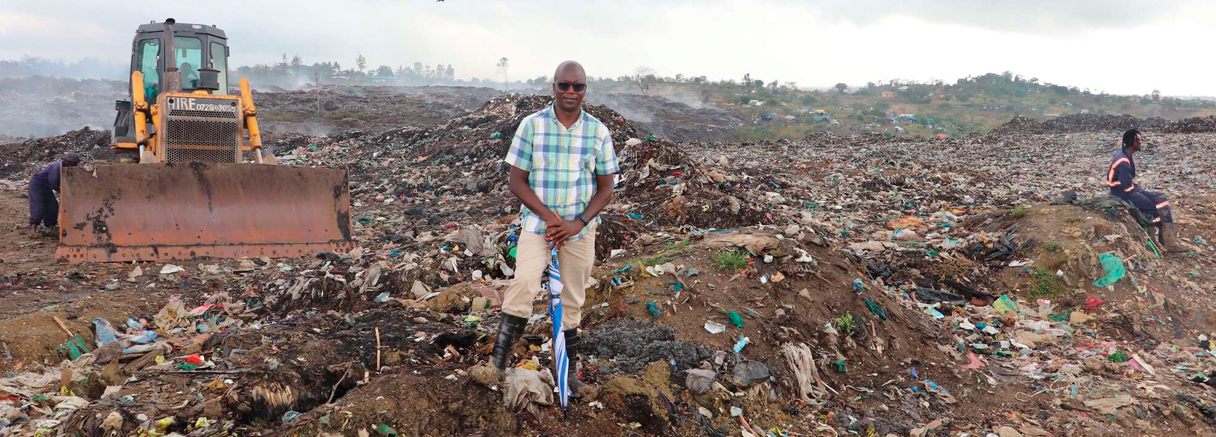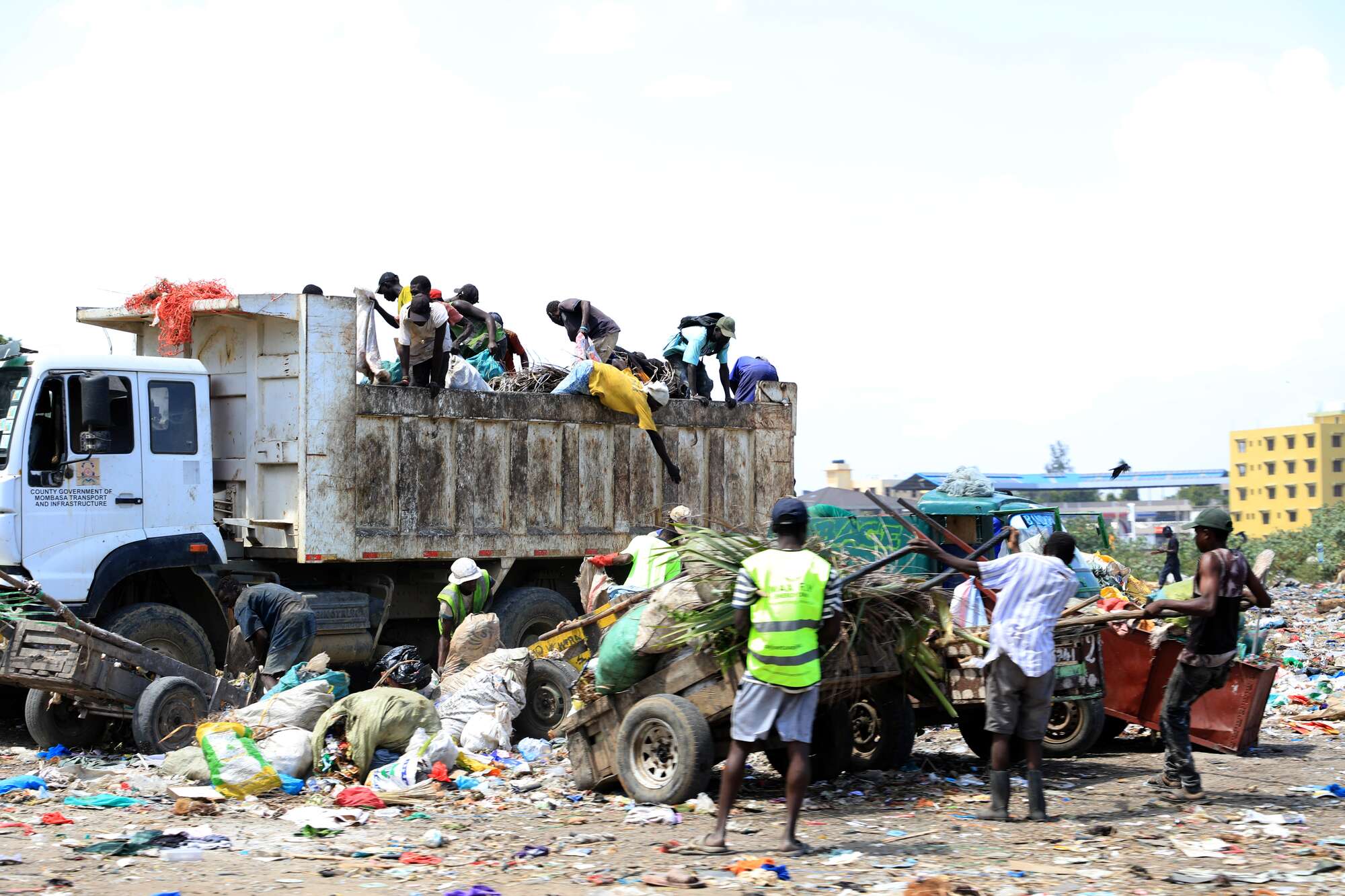Why Mombasa court users’ committee brought parties together in dumpsite tiff

On a particular chilly morning, residents of Mwakirunge ward, Mombasa County converge near a dumpsite, a haunting scene enveloped in a gentle drizzle. It’s an important day for them.
The members of the community filed a court case against the County Government of Mombasa for opening a dumpsite in their area following the closure of Kibarani dumpsite in 2018. The closure was prompted by both public health concerns and the alarming pollution of the Indian Ocean.
Braving the weather, Francis Thoya, the deputy governor for Mombasa who is representing the accused county government, is already on-site, clad in a heavy jacket and gumboots. He is sheltered beneath an umbrella.
“We have been fighting with the county government to either relocate this dumpsite or effectively manage the waste without affecting our community for some years without much success,” says Chale Kuza, the leader for Usafi ni Uhai, a local community organisation formed in 2014 to advocate safe waste disposal in the area noting that the community has already filed a case in court.
“Today is an important day because the Court Users Committee (CUC) for Mombasa County has convened a meeting within our community so that we can have an opportunity to meet everybody including county officials, the judge, and court officers who are dealing with our case on environment justice for Mwakirunge community,” says Kuza.
CUCs are forums that bring together players, both state and non-state, involved in the administration of justice at the local level. Hence, CUCs are domiciled at the grassroots level, specifically at the court level, with the primary mandate of ensuring the efficient administration of justice within the court’s jurisdiction. Justice Lucas Leperes Naikuni, presiding over the Mwakirunge dumpsite case, arrives on foot amid the showers, his vehicle unable to navigate the muddy and slippery road.

Ainea Ragen, the public interest litigator from the Centre for Litigation on Environment and Governance (CLEG), sits among the attentive crowd. The tension in the makeshift courtroom is palpable as community members, given the chance to speak, passionately accuse the government of neglect. Expressing their grievances with fervour, they detail the negative impacts of the dumpsite, ranging from pollution and insecurity to disease spread, deaths, and even children forsaking education to scavenge.
In response, Justice Naikuni acknowledges their concerns, assuring them that their voices have been heard. Despite refraining from discussing the ongoing case, he emphasises the court’s commitment to delivering a judgement without waiting for further harm to befall the community.
“I will not discuss the case at hand in this forum because it is a matter before the court of law, but one thing I know is that we will make a judgement. But we won’t wait for people to die before we do it,” he says.
Justice Kibunja, Chairperson for Mombasa Environment and Land Court Users Committee (ELC-CUC), highlights the vital role of such interactions. These moments allow communities to communicate with the court, fostering a mutual understanding between justice seekers and the legal system.
“Today, we appreciate the opportunity we have had here, to hear residents of Mwakirunge talk about what affects them individually and as a community, what the dumpsite means to them, and their expectations among other things,” he says.
Bernard Okemo, a climate criminal justice paralegal from the Legal Resource Foundation Trust (LRFT), sheds light on the unfortunate reality that many environmental cases go unpunished due to the overpowering financial influence of individual investors over oppressed communities.
“It is based on this that different organisations under the Voices for just Climate Action (VCA) came together to build capacities of communities affected by climate crisis, environment and land related issues to access justice,” he says.
Justice Kibunja noted that the constitution allows anybody and any group of people, with environmental concerns to approach the court. But underscores the necessity of proper documentation.
The process, according to Justice Kibunja, involves presenting an expert’s report, and evidence to support their cause before approaching the nearest court to file the case.
“This becomes an expensive affair,” says Grace Oloo from the Ujamaa Centre, a local organisation that builds capacities on environmental rights in the coastal region. “When people complain about ill health perpetuated by pollution for example, you need to convince the court by producing a scientific report to show that indeed, the prevailing conditions are caused by the environment pollution.”
“Embarking on such a scientific investigation to convince the court has always been a challenge to poor communities, and in some cases, communities do not even understand that they have a right to file a case against people involved in activities that pollute the environment,” she adds.
However, through CUCs, communities have been able to learn the litigation processes, and have an idea of what they should do, and who they should approach when their rights are infringed on.